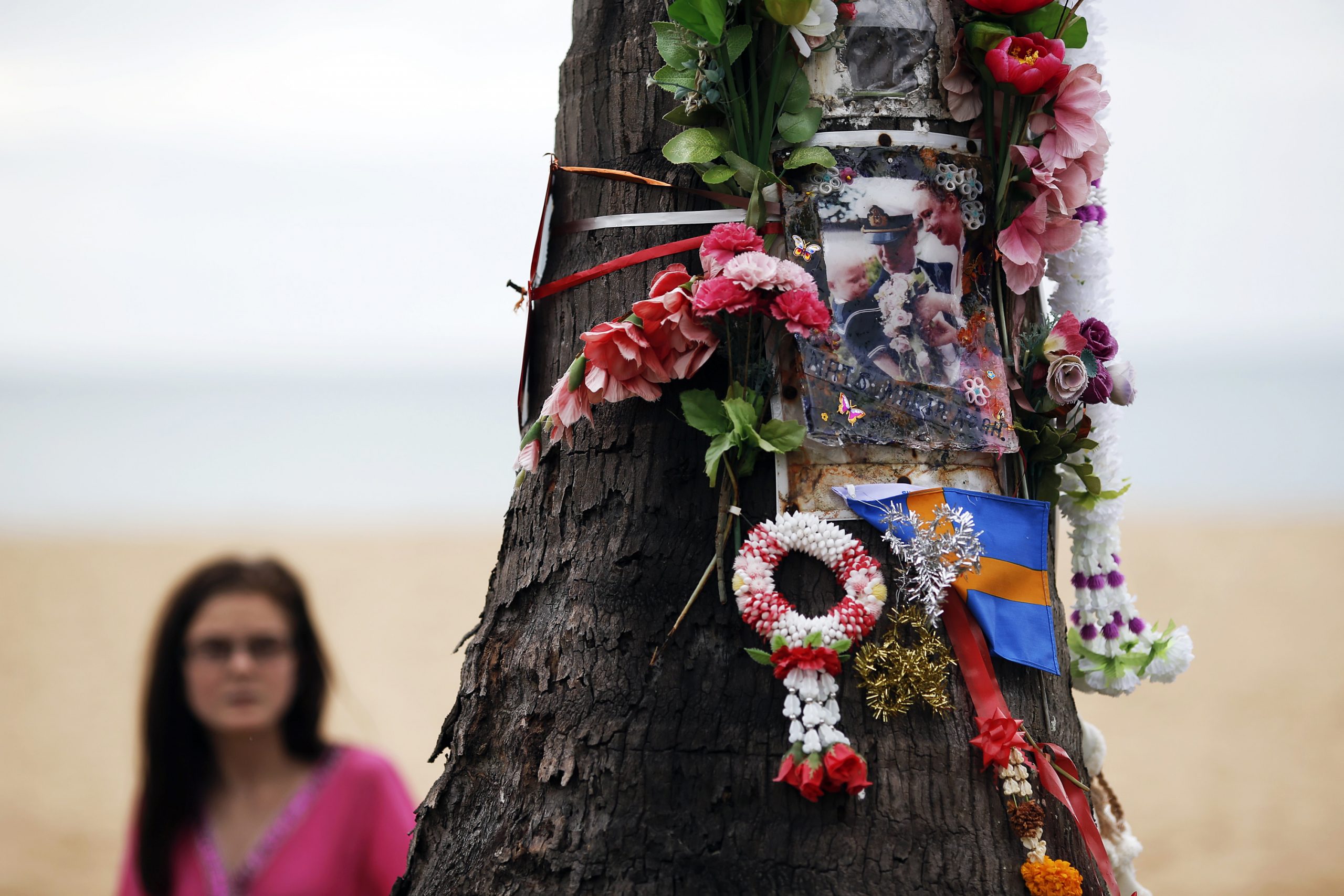Dec. 26 marked 20 years since the 2004 Indian Ocean earthquake and tsunami, which killed over 230,000 people in several countries, including migrants from Myanmar.
One of the hardest hit areas by the tsunami was Khao Lak village in Pha Nga Province of Thailand, 472 miles (760 km) south of the capital Bangkok. This is where Swe Swe Myint’s mother, a Myanmar migrant worker, was among the 4,000 people who died.
“The tsunami anniversary feels like it happened just yesterday. While the pain remains difficult to process, I’ve found strength in making [Buddhist] merit. Through these good deeds, I believe my mother can see and bless my path forward,” said Swe Swe Myint.
On Thursday, she joined families who lost loved ones in 2004, at a 20th anniversary commemorative ceremony on a beach in Khao Lak. Religious leaders from various faiths offered prayers and laid wreaths in remembrance of their deceased loved ones.
The Foundation for Education and Development (FED) has supported Myanmar migrant workers in Thailand since the 2004 tsunami. Its Executive Director Htoo Chit attended the commemorative ceremony in Khao Lak.
“We saw Myanmar migrant workers, who lost family members, making [Buddhist] merit for their departed family members,” said Htoo Chit.
In the immediate aftermath of the 2004 tsunami, media reported that over 2,500 Myanmar nationals were detained and deported by the Thai authorities.
While treatment of migrant workers in Thailand has improved over the last two decades, new challenges have emerged. Myanmar’s 2021 military coup, and 2024 military conscription law, has driven large numbers of Myanmar nationals into Thailand.
While significant efforts have been made to advocate on behalf of Myanmar migrant worker in Thailand following the 2004 tsunami, these measures have gradually weakened over the last few years, according to Swe Swe Myint.
She emphasizes the need for enhanced safety measures, drawing from her own experience of losing her mother.
“Natural disasters are unpredictable and often strike without warning, making the critical need for preparation. First, essential documents must be safeguarded. Second, a reliable and efficient warning system—such as an alarm—should be in place. Most importantly, regular disaster response training is vital, as it can save countless lives,” added Swe Swe Myint.
Today, the Myanmar migrant community in Khao Lak, southern Thailand, includes both long-term migrant workers who survived the 2004 tsunami and thousands of new arrivals since the 2021 coup.
Despite it being two decades since the devastating loss brought about by the 2004 tsunami, those who lost their family members continue to carry profound emotional trauma from this tragic event.



